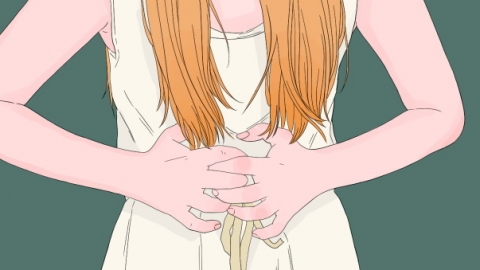What causes abdominal pain when moving after waking up from sleep?
The abdomen refers to the abdominal area. Experiencing abdominal pain upon moving after waking up may be caused by improper diet, excessive exercise, abdominal chilling, acute gastroenteritis, cholecystitis, and other conditions. Improvements can be made according to the specific cause. It is recommended to seek timely medical attention at a hospital and receive treatment under the guidance of a physician.

1. Improper Diet
Consuming excessive raw, cold, spicy, greasy, or irritating foods the previous night, or eating too quickly or too much, may lead to indigestion and gastrointestinal dysfunction, causing abdominal discomfort and pain. Adjust your diet by avoiding irritating foods and opting for light, easily digestible options such as rice porridge or noodles. Additionally, practice eating smaller meals more frequently and avoid overeating.
2. Excessive Exercise
If intense physical activity—especially exercises involving significant engagement of the abdominal muscles—is performed before bedtime, it may result in abdominal muscle strain or lactic acid buildup, leading to abdominal pain upon movement after sleep. Avoid vigorous exercise before bed; instead, choose gentle activities like walking. If pain has already occurred, gentle abdominal massage may help improve blood circulation and relieve muscle fatigue and discomfort.
3. Abdominal Chilling
During nighttime sleep, failing to cover the abdomen properly—especially leaving the stomach exposed—can easily cause abdominal cooling, triggering spasms of the gastrointestinal smooth muscles and resulting in pain upon movement. Maintain warmth in the abdominal area by wearing appropriate clothing or applying a hot water bottle or warm towel to the abdomen to relieve spasms and reduce pain.
4. Acute Gastroenteritis
Acute gastroenteritis may be related to dietary indiscretion or bacterial infection. Patients may experience symptoms such as abdominal pain and diarrhea, and may continue to have abdominal pain upon waking. Under medical supervision, patients may take medications such as levofloxacin tablets, amoxicillin capsules, or lactobacillus tablets for treatment.
5. Cholecystitis
Cholecystitis is usually caused by bile duct obstruction, bile stasis, and other factors, manifesting as abdominal pain, nausea, vomiting, and other adverse symptoms. After waking up, abdominal pain may occur with movement. Under medical guidance, patients may use medications such as racemic hyoscine butylbromide tablets, anti-inflammatory and gallbladder-relieving tablets, or ursodeoxycholic acid tablets for treatment.
In daily life, it is important to get adequate rest, ensure sufficient sleep, avoid staying up late, and engage appropriately in outdoor activities such as walking or calisthenics, which may aid in recovery.




